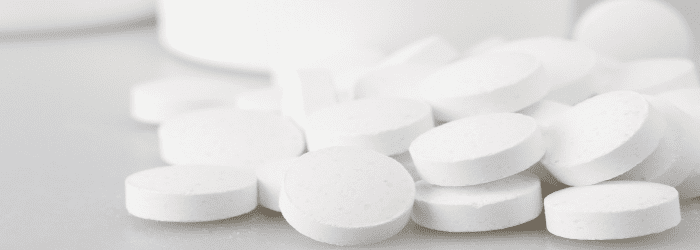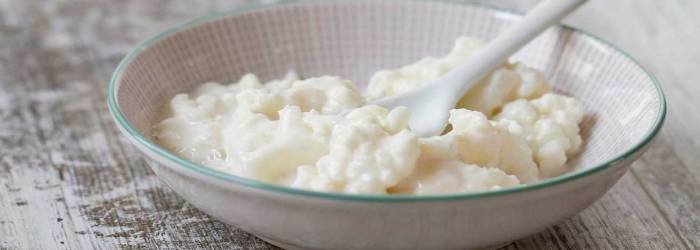
by admin | Dec 21, 2018 | Health Awareness
Cold and flu season is here, and if you’re like most people, you’ll do everything in your power to avoid getting sick. While you already know to avoid coming contact with sick people if possible and to wash your hands frequently, you can also do your body a favor by strengthening its own natural ability to fight off disease. In addition to considering the flu shot – which is recommended by the CDC for everyone over the age of six months – here are some simple tips you can try to give your immune system a boost.
Get Plenty of Sleep
Lack of sleep or poor-quality sleep can have a tremendous
impact on the immune system. Populations which tend to get the least amount of
sleep often face the greatest
risk for catching the flu. Encourage restful slumber by keeping your
bedroom a bit cooler than the rest of the house, avoiding electronics for at
least an hour before bed, and getting up and going to sleep at the same time
every day.
Cut Back on Alcohol
The cold weather brings the holiday season, which presents
plenty of opportunities to indulge in alcoholic beverages. Yet, it’s a good
idea to limit consumption, as excessive consumption is linked to adverse
immune-related health effects, including susceptibility to pneumonia. If
you do choose to imbibe, limit alcohol to the medically-backed recommendation of one drink per
day for women, or two for men.
Limit Stress
It’s easier said than done – especially during the holiday
season – but minimizing stress can help your immune system ward off disease.
Chronic stress depletes the immune system and impedes its ability to fight off
pathogens, including bacteria and viruses. Finding a healthy outlet for stress,
such as meditation, yoga, or another form of exercise, is important to
supporting optimal wellness.
Dress Warmly
For a while, researchers suspected that “catching a cold”
was simply a myth, and that exposure to cooler temperatures didn’t really
influence a person’s likelihood of falling ill. Yet, emerging evidence
suggests that, when exposed to cold temperatures, the body is less capable of
fighting off illnesses like the rhinovirus, a cause of the common cold.
Dressing in layers is never a bad idea – not only could it help you stay
protected against colds, but it will also aid in maintaining a normal body
temperature in the event you stay out longer than anticipated.
Optimize Your Diet
A healthy immune system requires a number of key nutrients to function its best. Vitamin C, found in citrus fruits, increases the production of white blood cells to fight off infections. Garlic, too, has immune-boosting properties, which is likely due to its rich content of compounds containing sulfur. Green tea, ginger, turmeric, spinach, and almonds are also hailed for their power to strengthen immunity. In general, avoiding heavily processed foods and prioritizing whole, natural foods are great ways to reduce inflammation and support overall health. Because immune system health and the gastrointestinal tract are suspected to be closely linked, you may also want to consider taking probiotics or colostrum, which could lead to better gut health.

by admin | Dec 19, 2018 | Health Awareness, Multiple Sclerosis
Multiple sclerosis (MS) is a chronic condition in which the body’s immune system directs itself against the central nervous system (CNS). Most often, this impacts the brain, spinal cord, and optic nerves. The symptoms of this condition can vary widely, with some people experience mild effects and others struggling to complete daily tasks.
Frustratingly, many of the symptoms of MS aren’t outwardly visible. These behind-the-scenes challenges are therefore often endured silently, while the patient’s friends and family members may assume that their appearance of health indicates minimal to no suffering. Here are some of the symptoms which, despite their invisibility, can be debilitating; along with practical coping mechanisms to help you maintain your quality of life.
Pain
Up to two-thirds of people with MS report pain. For many, it interferes with aspects of daily life, including career, recreation, mood, and their ability to complete activities. The steady discomfort is suspected to result from fatigued muscles, which are working to compensate for those weakened by the disease. Sometimes, chronic pain is reported to feel like a tight band around the chest or torso, known as the “MS hug.” It may also feel like burning, prickling, aching, or “pins and needles.”
Sharp pains, on the other hand, are believed to be from faulty nerve signals caused by the lesions produced by MS in the CNS. The damage to the nerves is called dysesthesia and can impact the legs, feet, arms, and trunk. Up to 55% of people with MS have experienced this “clinically significant pain,” and while it isn’t necessarily dangerous, it can be a source of significant frustration.
For some people, compression stockings or gloves can minimize the pain caused by dysesthesias. For others, pain is more pronounced and requires the use of medications. Doctors may prescribe anticonvulsant medications or antidepressants, which change the ways in which the CNS reacts to pain. Over-the-counter pain relievers, including acetaminophen, and warm compresses can also be used to combat pain under a doctor’s supervision.
In many cases, chronic pain is best addressed through anti-inflammatory drugs, either over-the-counter or prescription. Stretching routines may also aid in maintaining flexibility in the muscles, which could help with pain levels. Massage therapy and physical therapy may also be beneficial. Some seeking an alternative option will consider stem cell therapy due to the potential regenerative ability these stem cells offer for those with MS.
Ultimately, discomfort for MS patients varies in intensity. On days when pain is most severe, changing your routine may provide the greatest relief. Whether it’s declining a social event or using a mobility-assistive device, it’s important to find ways to put your comfort first when experiencing intense pain.
Fatigue
The fatigue MS patients experience goes beyond general tiredness: it is often described as a flu-like feeling of exhaustion or extreme muscle weakness. It occurs in 80% of people with the condition and is therefore among its most common symptoms. Although the condition itself can be the cause, it’s also possibly related conditions, such as sleep disorders, medications, and depression could be culprits behind fatigue.
To determine the best form of treatment for your fatigue, consult with your doctor to pinpoint the reason for your exhaustion. If it’s the condition itself, lifestyle management tactics developed through occupational and physical therapy could make day-to-day tasks more manageable. Scheduling rests and even short naps could help you conserve energy. Also, while it might seem counterintuitive, light physical activity might actually combat energy depletion.
For sleep-related issues, stress management, relaxation training, and sleep regulation techniques may be beneficial. If your fatigue comes on suddenly, occurs regularly, and begins to interfere with responsibilities, consider talking to your doctor about medication options.
Cognitive Issues
Cognitive impairment, including issues with memory, perception, learning, and problem-solving, is reported by nearly 50% of people with MS. Sometimes, it can be difficult to tell whether the symptom is tied to the mental fatigue or “brain fog” the condition causes, or whether the mental glitches are actually a result of the impact MS has on the CNS.
While research on the best methods for treating cognitive impairment in MS is still ongoing, there are some tactics you can implement to work around any mental challenges you may experience. Mood management is a good starting point: if you experience inexplicable mental or emotional shifts, you could be suffering from depression. This symptom may be a result of the condition itself, or it could be attributed to medications, in which case you could discuss with your treating physician to see if adjustments to your treatment may be needed.
For some people, brain exercises such as puzzles and memory games help to maintain mental acuity. The brain is a muscle, and working it out regularly is important to facilitating strength. Planning your days in advance is also a good way to minimize any challenges cognitive issues may pose. Schedule important tasks for the times of day when you feel most alert. Finally, don’t hesitate to seek out support from counselors, support groups, or loved ones. Isolation can exacerbate cognitive decline, but socialization can improve or minimize the symptom.

by admin | Dec 14, 2018 | Health Awareness
The holiday season is often seen an opportunity to indulge, so wellness typically isn’t the first thing that comes to mind this time of year. While there’s nothing wrong with enjoying some sweet treats and rewarding yourself for a year of hard work, now is still a good time to prioritize your health. Doing so can help you ensure you feel great not only through this season but for many more to come. Here are 7 hopefully helpful tips for promoting your health this holiday season.
1 Avoid the Flu
Flu season is upon us, but it’s never too late in the season to get vaccinated if you haven’t already done so. Even in healthy people, flu complications such as pneumonia and dehydration could pose serious health risks. The CDC advises everyone over the age of 6 months to get a flu shot, as long as they have no known allergies to the vaccine or eggs. While it isn’t 100% effective,it can significantly reduce your odds of catching the flu or make symptoms less severe even if you do catch it. Don’t forget to wash your hands and avoid coming into contact with people who are knowingly sick, too.
2 Go for Exams
Many people have met their deductibles by this time of year,
so if you aren’t up-to-date on your health screenings, now is a good time to
schedule appointments as needed. If you’re a woman over the age of 40, this
includes mammograms, while men 50 and up should have prostrate screenings.
Colonoscopies should be completed every ten years starting at the age of 50,
and at 65, it’s a good idea to have bone density studies performed.
3 Practice Safe Food Prep
With so many recent foods recalled, it’s more important than ever to practice safe food prep. While there’s no way to be entirely sure your food is 100% free of pathogens, you can take a few steps at home to reduce your risk of exposure. Be sure to wash your hands and surfaces frequently, prepare meats separately to prevent cross-contamination,and always wash produce thoroughly.
4 Always Wear Seatbelts
The hustle and bustle of the holiday season makes it easy to overlook this important safety practice. Yet, you should pause and take thetime to put your seatbelt on every time you get in the car. From heavier volumes of traffic to icy conditions, winter can create some challenging driving circumstances, so it’s always important to make sure you’re safe as a passenger or driver.
5 Stay Warm
If you intend to spend some time outside, be sure to dress appropriately and keep your head, hands, and feet protected with warm clothing. Additionally, try to keep your nose warm – research shows the virus behind the common cold is more likely to take hold if your nose is chilly. Don’t forget to keep a spare blanket, gloves, and hat in your car to provide warmth in the event you should ever get stranded.
6 Beat Stress
The holidays are practically synonymous with stress, but that doesn’t mean you can’t take some time out to practice healthy stress management. Yoga, meditation, and even a brisk walk around the block can be used to clear your head as needed. This time of year is also linked to seasonal depressive disorder (SAD),so if you find yourself losing interest in activities you once enjoyed, schedulea session with a counselor who can help.
7 Eat Well and Exercise
You can expect to find an abundance of delicious treats, rich foods, and alcoholic drinks at most holiday gatherings. While it’s perfectly fine to indulge this time of year, remember that moderation is key. Limit drinks to one to two at most, and sip water in between to stay hydrated. Offset less-healthy meals with vegetable-rich choices for the rest of the day. Never skip a meal to make up for an indulgence you’ll have later on, either. Instead, fill up on meals with lean protein and veggies, such as a vegetable omelet or grilled chicken salad, earlier in the day. That way, you’ll be less likely to overeat later.
Don’t forget to take some time out for whatever form of exercise you enjoy, too. It can even be built into family time. If you’re visiting with loved ones, for instance, consider taking a walk as a family or going to a group aerobics class nearby. Not only will you feel better physically, but exercising can also support a better mood, too.

by admin | Nov 30, 2018 | Health Awareness
Regenerative medicine seeks to restore the functionality of cells, tissues, organs, or genes. In particular, stem cell therapy is among the most promising forms of regenerative medicine. This is due to the fact that stem cells are not specialized cells and can, therefore, transform into any cell or tissue with which they come into contact, including that of muscle, tendon, bone, and ligament. From supporting regrowth of meniscal cartilage in the knee to the self-renewal of central nervous system (CNS) tissue, stem cell therapy has shown a potential option of treatment for a broad range of conditions and injuries.
Stem cell therapy is an emerging regenerative medicine option for those who have sustained the central nervous system (CNS) damage including traumatic brain injury, stroke, and neurodegenerative disorders such as multiple sclerosis. CNS injury is characterized by an inflammatory response, molecular imbalance, cell death, and cyst and scar formation. Researchers suggest that co-therapies, such as physical rehabilitation, could help be a potential booster for their stem cell therapy treatment outcome.
Studies have shown stem cells’ ability to aid in CNS recovery but may also suggest that while significant improvement is made, the treatment is often not enough to completely recover CNS functionality without further intervention. In conjunction with physical therapy, stem cell therapy could produce stronger results. Targeted exercises can produce beneficial effects at the anatomical and physiological levels, thereby positively influencing neural stem cell pools and improving stem cell therapy outcomes. Exercise has been shown to augment stem cell transplantation following muscular injuries in certain studies, but further research is needed to determine exactly how physical therapy and stem cell treatments can be used to support optimized recovery on a case-by-case basis.
Moving forward, it is suggested that physical therapy could help as a supplement to stem cell therapy. By partnering these two therapeutic approaches, patients may be able to potentially improve their treatment outcomes as well as enhancing functionality and quality of life.

by admin | Nov 16, 2018 | Health Awareness
While most vitamins and minerals can be obtained through food sources, the modern American diet does leave some nutritional gaps which many people should address. Folic acid, in particular, is one vitamin which contributes to important bodily functions and may need to be taken in supplement form in certain populations.
What is Folic Acid?
Folic acid is a water-soluble B vitamin. Folate is found both naturally in food, while folic acid is its synthetic form. In the late 1990s, food sources including pasta, cereal, bread, and flour were required to be enriched with the vitamin by federal law. Certain foods are also innate sources of folate, including leafy greens, asparagus, beans, bananas, melons, mushrooms, and some types of meat.
What Does It Do?
Folate is required by the body to make red and white blood cells, produce healthy DNA, and transfer carbohydrates into energy. In addition, it prevents the complications associated with low blood levels of folate, including the inability to absorb nutrients through the bowels and anemia. Folic acid is also used to treat conditions commonly associated with folate deficiencies, such as ulcerative colitis and liver disease, as well as kidney dialysis.
Because of its far-reaching impact, folic acid is also used to support a number of bodily functions. It is often taken by patients with Alzheimer’s and memory loss, hearing loss, macular degeneration, and osteoporosis. Some people use it as a preventative for cancers such as colon cancer or cervical cancer, and it is even taken to minimize the risk of heart disease and stroke.
Finally, folic acid is perhaps best known for its ability to prevent birth defects. Women who are pregnant, trying to get pregnant or breastfeeding can take a supplement under the direction of their obstetrician to support fetal health and development.
Should You Take Folic Acid?
Many people can get folate through their diets, but achieving the recommended daily value of 400 micrograms (mcg) can be challenging to do through food alone. If you are eating a blend of whole foods every day, there’s a chance you could be getting enough folate already, but because the vitamin plays such an essential role in various bodily functions and disease risk management, it doesn’t hurt to ask your doctor about taking supplements. Most folic acid supplements are sold in 400 mcg doses, but don’t worry if you get more folate from your diet naturally – many adults can take up to 1,000 mcg safely but talk to your doctor first before starting any supplements.

by admin | Nov 9, 2018 | Health Awareness
Probiotics have been gaining attention within the world of nutrition recently due to their suspected ability to help maintain healthy gut flora. These “good” bacteria are found in food and are similar to those already located in your intestinal tract. And, while the digestive system has a greater number of bacteria than there are cells in the body, the harmony among within this microbiome can be thrown off easily with antibiotics, environmental toxins, and poor diet. Left unaddressed, a balance that becomes altered can lead to symptoms such as nausea, diarrhea, and fatigue. It is even suspected that when the ratio of good-to-bad gut bacteria is off, it could result in chronic inflammatory conditions like arthritis, allergies, and inflammatory bowel disease.
Luckily, there’s a simple way to begin promoting gut health. In fact, in as little as 24 hours, you can create a new microbiota by simply changing what you eat. In addition to following a diet rich in fruits, vegetables, and lean protein, you can also begin to incorporate probiotics into your meals. While yogurt is commonly thought of as the go-to choice for consuming healthy-gut bacteria, there are plenty of other options to choose from. Explore some of the most popular alternatives below.
Kefir
Kefir is a sour-tasting fermented drink made from the milk of cows, goat, or sheep. Its origins can be traced to the Caucasus Mountains of West Asia. The drink is fermented with kefir grains and is considered to be even healthier than yogurt. While low in calories, kefir also has many macro and micronutrients, including protein, calcium, vitamin B12, and phosphorus.
Kombucha
Kombucha seems to be everyone’s power beverage of choice these days, and for good reason. The fermented tea isn’t just replete with probiotics; it also has bountiful antioxidants. Kombucha made from green tea is especially beneficial, as it shares many of the same health benefits of the tea, including the ability to support weight loss and blood sugar control.
Olives
When we think of foods high in nutritional value, olives aren’t typically the first things to come to mind. Yet, these salty salad toppers are bursting with helpful bacteria. Like many of the other foods on this list, the fermentation process which olives undergo is responsible for their high content of probiotic bacteria. They’re also high in healthy unsaturated fats and have antioxidant properties.
Tempeh
Hailing from Indonesia, tempeh is a soy product known for its versatility. While it is less popular than tofu, it acts as a great substitute for the vegan staple for anyone looking to add some probiotics to their plate. Many versions also contain grains, flavorings, or beans. Tempeh holds its shape well and has a nutty taste, as well as a consistency that holds oils well. Consider incorporating it into a stir frstir-fry it on a skewer, or throw it into a salad.
Coconut Yogurt
If you’re lactose intolerant or have eliminated dairy from your diet for other reasons, you can still get your yogurt fix through the coconut version. Coconut yogurt can be eaten plain and packs a powerful serving of probiotics. Or, you can incorporate it into smoothies, overnight oats, and any other meal or snack as you see fit.
You don’t have to rely on yogurt alone to consume a healthy blend of probiotic-rich foods. When combined with other all-natural food products, these probiotics may help you maintain optimal gut health while also supporting your overall wellness.







 St. Petersburg, Florida
St. Petersburg, Florida
